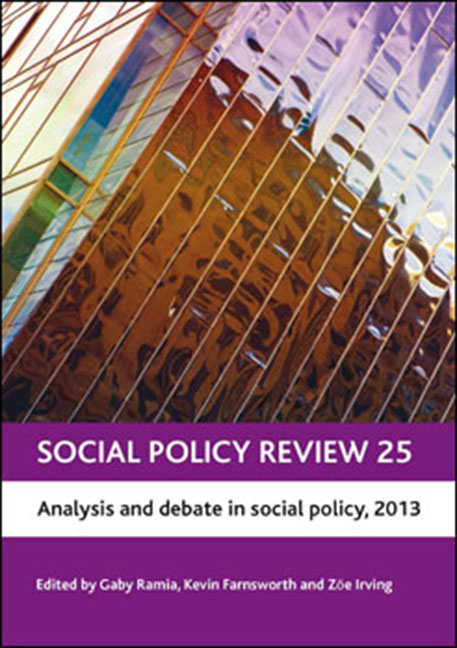Book contents
five - It’s time to move on from ‘race’? The official ‘invisibilisation’ of minority ethnic disadvantage
Published online by Cambridge University Press: 03 February 2022
Summary
The national policy context
This chapter demonstrates how, over the past 10 years in particular, official policy of both central and local government has resulted deliberately, and at times possibly unintentionally, in the growing ‘invisibilisation’ of the dimension of ‘race’. Issues regarding the growing disadvantage of many ethnic minorities are thus becoming obscured in public debate.
The McPherson Inquiry into the Stephen Lawrence murder marked an apparent watershed in official responses to racism, especially policing responses to racially motivated crimes. Despite legislation (including the Race Relations Amendment Act [RRAA] 2000) and policy guidance, the socially constructed criminalisation of black and minority ethnic (BME) communities continues. Minority groups are disproportionately represented within the prison population but under-represented in staff roles across the criminal justice system (Ministry of Justice, 2010; Sveinsson, 2012) and ‘problems, limitations and contradictions’ (Rowe, 2012, p 184) occur in ethnic monitoring.
Cantle's (2001) report following the ‘race riots’ of 1995 and 2001 introduced a focus on ‘community cohesion strategies’ in multi-ethnic communities, which were substantially emphasised following the 2001 US and 2007 London terrorist attacks. Subsequent research documents a clear shift away from discourses of multiculturalism and diversity towards a concern with issues of security and ‘Islamophobia’. Meanwhile, everyday issues facing minority groups, including racism and racially shaped disadvantage, are fading from public and policy debate.
The wider socio-political context to these issues includes the racialisation of immigration and increasingly restrictive asylum policy, framed within the language of border controls and securitisation, with mainstream media promoting an ‘outsider configuration’ (Elias and Scotson, 1994). Migration debates do not generally link the local with the global; however, forced migration is ‘not the result of a string of unconnected emergencies, but an integral part of North–South relations’ (Castles, 2003, p 9). When political parties ‘limit debate to peripheral issues on immigration, then the space for questioning’ is, critically, greatly reduced (Pickering, 2005, p 5).
There is a greater need now to understand the reality and the experiences of racism while acknowledging that race is a socially constructed concept, and that racialisation connects with other socially constructed discourses in the processes of ‘othering’.
- Type
- Chapter
- Information
- Social Policy Review 25Analysis and Debate in Social Policy, 2013, pp. 93 - 112Publisher: Bristol University PressPrint publication year: 2013



